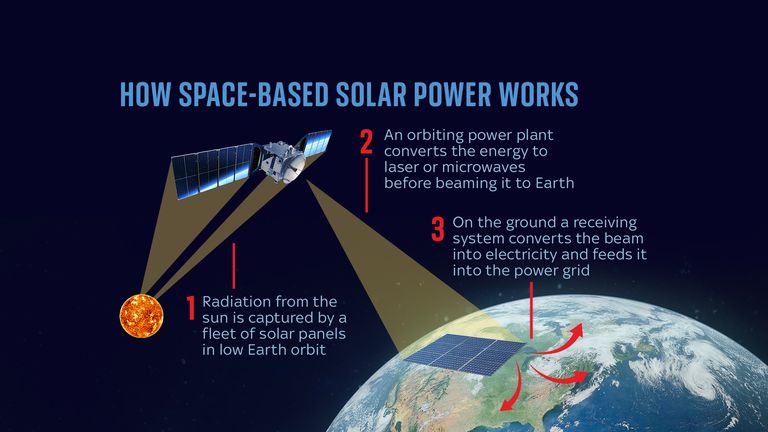Cool. But what are the interim steps? How do we go from here to there? We have not even solved drinking water.
— Paramendra Kumar Bhagat (@paramendra) May 30, 2025
Twitter's no link policy is stupid. That is Elon fantasizing about turning Twitter into AOL, the only place you need to go.
— Paramendra Kumar Bhagat (@paramendra) May 30, 2025
In his blog post "Star Trek Vision: Energy Too Cheap To Meter," Albert Wenger envisions a future where energy is so abundant and affordable that metering consumption becomes obsolete. This concept, reminiscent of the utopian ideals portrayed in Star Trek, suggests a transformative shift in our energy systems, driven by advancements in solar power, energy storage, and grid infrastructure.
To transition from our current energy landscape to this envisioned future, multiple plausible roadmaps can be considered. Each pathway leverages different technological, infrastructural, and policy developments to achieve the goal of abundant, nearly free energy.
Roadmap 1: Solar-Centric Infrastructure
2025–2035: Accelerated Solar Deployment
-
Massive Investment in Solar Energy: Governments and private sectors invest heavily in solar panel manufacturing and installation, making solar the primary energy source in many regions.
-
Advancements in Energy Storage: Development of cost-effective battery technologies and other storage solutions to address the intermittency of solar power.
-
Grid Modernization: Upgrading existing grids to handle decentralized energy production, incorporating smart grid technologies for efficient energy distribution.(IRENA)
2035–2045: Integration and Optimization
-
High-Voltage DC Transmission Lines: Construction of long-distance transmission lines to transport solar energy from high-production areas to regions with higher demand.
-
Synthetic Fuels and Energy Carriers: Development of synthetic fuels produced using excess solar energy, facilitating energy transport and storage.(Continuations)
-
Policy Reforms: Implementation of policies that phase out fossil fuel subsidies and incentivize renewable energy adoption.
2045–2055: Realization of Abundant Energy
-
Energy Costs Plummet: With widespread solar adoption and efficient storage, the marginal cost of energy approaches zero.(Continuations)
-
Universal Access: Energy becomes universally accessible, supporting economic growth and improving quality of life globally.(IEA)
Roadmap 2: Fusion Power Breakthrough
2025–2035: Research and Development
-
Investment in Fusion Research: Significant funding directed toward fusion energy research, including public-private partnerships.(Wikipedia)
-
Prototype Reactors: Construction and testing of prototype fusion reactors to demonstrate feasibility and address technical challenges.
2035–2045: Commercialization
-
Operational Fusion Plants: Deployment of the first commercial fusion power plants, providing a new source of clean, abundant energy.(Wikipedia)
-
Grid Integration: Integration of fusion energy into existing grids, complementing renewable sources and enhancing energy reliability.
2045–2055: Global Expansion
-
Scaling Up: Rapid expansion of fusion power infrastructure globally, reducing dependence on fossil fuels.
-
Economic Transformation: Drastic reduction in energy costs stimulates innovation and economic development across various sectors.
Roadmap 3: AI-Driven Energy Optimization
2025–2035: Digitalization of Energy Systems
-
Smart Grids: Implementation of AI-powered smart grids that optimize energy distribution and consumption in real-time.
-
Predictive Maintenance: Use of AI for predictive maintenance of energy infrastructure, reducing downtime and operational costs.
2035–2045: Autonomous Energy Management
-
AI-Controlled Microgrids: Deployment of autonomous microgrids managed by AI, capable of self-balancing and responding to local energy demands.
-
Dynamic Pricing Models: AI algorithms manage dynamic pricing, encouraging energy use during periods of surplus and promoting efficiency.
2045–2055: Seamless Energy Ecosystem
-
Integrated Energy Networks: A fully integrated, AI-managed energy ecosystem that ensures optimal energy distribution, minimal waste, and near-zero marginal costs.
-
Empowered Consumers: Consumers become active participants in energy markets, with AI tools enabling informed decisions and energy sharing.
Conclusion
Achieving a future where energy is "too cheap to meter" requires a multifaceted approach, combining technological innovation, infrastructure development, and policy reform. Whether through the widespread adoption of solar energy, breakthroughs in fusion power, or AI-driven optimization of energy systems, each roadmap presents a viable path toward abundant, affordable energy. Realizing this vision will not only address pressing challenges like climate change and energy poverty but also unlock unprecedented opportunities for human advancement.
For further insights into this vision, you can read Albert Wenger's original blog post here: Star Trek Vision: Energy Too Cheap To Meter.

